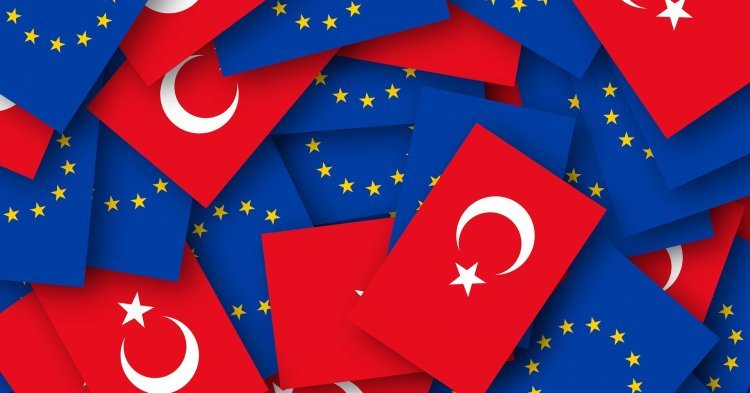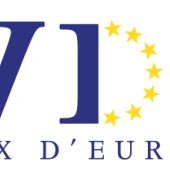Enlargement that has sparked 30 years of debate
Turkey already applied to join the EU in 1987. Nonetheless, it had to wait until 1999 for the EU to officially recognise it as a candidate. The prospect of Turkish entry sparks vivid debate in Europe, especially because Turkey is a very populous country (which would give it very significant power, equal to that of the “big” European countries like France, Germany or Italy), Muslim (even if it has been a secular state since its inception in the 1920s), and because because it has for decades had a dispute over the island of Cyprus with the Greek-speaking Cypriots. Moreover, there are small details that provoke restraint among certain member states.
In comparison, even if the entry of countries of the former Eastern Bloc didn’t happen painlessly, their accession didn’t provoke the kind of strong reactions that surround the Turkish candidacy.
However, today the question of Turkish accession no longer seems to be on the agenda. Since France and Germany’s blocking of the negotiations in 2007, the intensification of the conflict with the Kurds in this decade and the repression of the Gezi Park protests in 2013, the Turkish President Recep Tayyip Erdogan has taken more and more authoritarian decisions in his country and made provocations towards the EU.
Questions of geopolitics and size
One needs to underline the fact that the geographical position of Turkey has made the country an ally that the EU can’t overlook.
Located at the junction of the West and Arab Muslim countries, Turkey has the position of an intermediary. Its army is one of the most powerful in the NATO, topped only by the United States. In the view of certain European countries, Turkey could be a peaceful buffer zone between a stable EU and the countries of the Middle East that are unstable, to say the least. In the vision of other EU members, by contrast, if the EU becomes a participant in conflicts in this region, it will lose its capacity to mediate.
The negotiations were halted as Turkey refused to recognise its role in the Armenian genocide of 1915, a sine qua non condition for the Commission to advance the accession negotiations. Moreover, Turkey still refuses to recognise the Republic of Cyprus, whose northern part is still occupied by Turkish soldiers, as legitimate. In 2017, discussions on the latter question took place in Geneva, under the aegis of the United Nations, to abate the last conflict that divides a European capital in half. But the Turkish side pulled out, stating that it would not order the withdrawal of soldiers from Nicosia. In early 2018, the tensions in fact increased between Cyprus and Turkey, as the latter blocked an Italian gas drill ship in Cypriot waters, in what Cyprus called a violation of international law.
Migration management
The so-called migrant crisis has brought out a new dimension in EU-Turkey relations. The unprecedented situation in the Mediterranean pushed member states of the EU to sign an extremely controversial agreement with Ankara at the start of 2016 to stem migration, as the EU did not know how to cope with the crisis. With the deal, Turkey helped the EU to find a temporary solution.
According to the deal, all irregular migrants who crossed Turkey to reach Greek islands since 20 March 2016 are resent to Turkey. For each Syrian sent back from Greece, another is resettled in the EU, up to a limit of 72,000 persons.
At the same time, the EU reopened the chapter on budgetary matters in Turkey’s EU accession negotiations in June 2016, and the EU undertook the process of visa liberalisation for Turks. However, the developments have been compromised by the current situation in Turkey.
Two years after the agreement, its results are contested. The number of migrants arriving on Greek islands has decreased dramatically, by 97 percent, and 1,500 migrants have been taken back to Turkey. Living conditions in the Greek islands, however, have not improved.
Authoritarian turn
In May 2013, a protest movement of a size not seen before emerged in Istanbul, initially motivated by environmental questions. The movement rapidly transformed into a huge wave of demonstrations against the ruling regime. Police repression was upped in response to the protests. The European Commission and Parliament condemned the regime’s reaction firmly and reminded that police violence has to be prosecuted.
In 2014 and 2016, purges took place in the country, especially within the police force, government and other public offices. The failed coup of 2016 only accelerated this development. The authoritarian turn of President Erdogan was unstoppable.
In a 2018 report, the European Commission stated that since the declaration of the state of emergency in 2016, Turkey had arrested 78,000 people and 150,000 had been detained. Among other things, Turkey is not a good place to be a journalist: amid imprisonment and censure, journalists’ speech is not free.
After the strengthening of presidential powers, the next question is the reintroduction of the death penalty in Turkey. In May 2017, European Commission President Jean-Claude Juncker warned that the reintroduction of capital punishment would mean the end of Turkey’s EU accession negotiations. (Translator’s note: To date, the death penalty has not been reintroduced.)
Negotiations at a dead end
The acquis communautaire is the body of legislation that all countries of the EU have adopted, and that new countries need to adopt in order to enter. The negotiations are composed of 35 chapters, representing different areas of legislation. After the recognition of a country’s candidate status, the European Commission recommends the opening of individual chapters. Finally, when there is enough progress, the Council of Ministers decides to provisionally close the chapter.
Of the 35 chapters, only 16 have been opened, and only the chapter on science and research has been provisionally closed. Since 2018, the negotiations have no longer advanced. To the EU, the lack of progress means that in the end, Turkey is not willing to join the EU and to follow its requests. Already in 2017, German Chancellor Angela Merkel said directly that ‘Turkey should not become a member of the EU’. In 2018, Emmanuel Macron took the same position, saying that he would prefer a partnership to membership.
What’s more, this March the European Parliament voted in favour of suspending the negotiations and Turkey’s bid to join the EU. After 30 years of stagnation, Europe’s leaders clearly do not want Turkey to join the EU. Given the non-respect for human rights and the recent authoritarian events in the country, the European Parliament has also concluded that the negotiations are a waste of time.







Follow the comments: |
|
